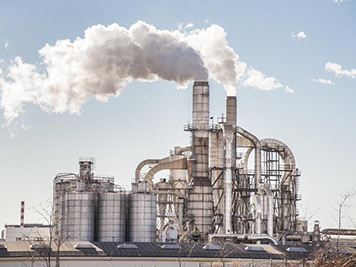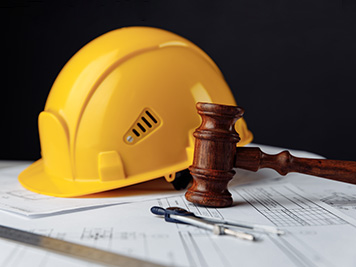Countless construction projects are worked on every year, each introducing unique risk factors to the associated workers, stakeholders, and building companies. Not only can these dangers plague progress, but they can put a financial strain on a company’s bottom line.
Among these thousands of jobs are various construction projects, and every type demands specific insurance coverage. For example, a commercial building project requires different protections when compared to a home remodel.
To ensure your company has the right coverage, let’s look at the various construction insurance coverage types to determine which is best for your needs.
Construction insurance: definition and importance
Construction insurance is a broad category of coverage designed to protect individuals, businesses, and stakeholders involved in any construction project. It’s an umbrella term encompassing various types of insurance policies designed to safeguard against the unique risks and challenges associated with the construction industry.
This type of insurance helps protect against a wide range of potential losses, liabilities, and unforeseen events that can occur at any point in the building process and result in large financial losses if not adequately covered.
While a crew’s contractor and construction workers are strongly encouraged to take all the necessary safety precautions to keep themselves safe, accidents can still occur. Construction insurance—particularly policies that include workers’ compensation and general liability insurance coverage—can help protect the business owner and employees from high medical expenses, legal fees, and property damage repair or replacement costs.
On top of that, having specific types of construction coverage may be required based on the construction company’s location. Stay compliant with local, state, and federal laws by meeting mandated protection necessities related to liability, workers’ compensation, and other aspects of risk management. According to CM Labs, the penalty can cost up to $134,000 for safety and health violations in the industry. Additionally, legal action against business owners, increased insurance premiums, and project delays can all occur when a company isn’t compliant.
Protection beyond physical health
Generally, when the topic of construction worker safety is brought up, people think mainly about the physical safety of crews and the mitigation of injuries and accidents. While this is a big part of construction coverage, it shouldn’t be the only focus.
The well-being of workers includes mental, social, and financial health, as well as physical wellness. A holistic construction insurance program can help companies better support their workforce, delivering helpful resources and financial tools to promote overall health. This type of care is crucial, especially for workers who put in long hours and are exposed to harsh conditions—both physically and emotionally.
When looking at the different construction insurance options, consider what plans would serve your employees in all areas of their health for the most effective coverage.
What are the types of construction insurance?
The coverage options available to building companies are almost endless, and plans can be customized to fit each organization’s specific requirements. These are the most common types of construction insurance for business leaders to invest in:
Builder's risk insurance
Builder’s risk insurance, also called course of construction insurance, covers damage or loss to a building or structure while it’s under construction or renovation. It can be purchased by the project owner or a general contractor to cover all parties involved in the job. Specifically, it offers coverage from harm caused by:
- Explosions
- Fire
- Hail
- Lightning
- Natural disasters (hurricanes, tornadoes, and other unforeseen weather events)
- Theft
- Vandalism
Covered materials and financial assets may include:
- Additional interest on loans due to delays
- Building materials or supplies
- Equipment either on site or in transit to another location
- Increased real estate taxes caused by project setbacks
- Lost sales or rental income
General liability insurance
General liability insurance is crucial for contractors and construction companies because it protects against third-party bodily injury, property damage, or personal injury claims that may happen during construction.
These claims usually involve physical damage to an individual or site due to a contractor’s products, services, or operations. They can also include defamatory advertising claims. Without general liability coverage, building organizations must pay for hefty claims out of pocket.
Errors & omissions or professional liability insurance
With this plan style, design professionals like architects and engineers or on-site construction workers can be protected against claims related to errors or omissions in their professional services. If a client believes the completed work doesn’t meet their standards, errors and omissions insurance (E&O) or professional liability insurance can secure industry professionals from claims regarding alleged mistakes made throughout construction. General liability insurance is similar to this coverage plan but protects from injury or property damage, while E&O may protect companies against financial damage caused by lawsuits.
Inland marine insurance
Inland marine insurance covers property in transit to and from a job site over land or in temporary storage during construction. This plan is designed to extend a general builder’s risk policy to keep moveable business equipment and assets out of harm's way while on the road. Normally, inland marine insurance doesn’t cover stationary property protected by standard commercial property insurance.
Commercial auto insurance
Because crews often use fleet vehicles and drivable equipment to complete tasks efficiently, this type of insurance covers company-owned vehicles for damage, accidents, and liability claims. This type of coverage is mandated in every state when the organization purchases the vehicle an employee or business owner uses. It’s important to check your state’s laws to determine what type of auto insurance suits your construction company.
Workers' compensation insurance
While many states make this type of construction insurance mandatory, workers' compensation is critical for covering medical expenses and lost wages for employees who are injured or become ill on-site. The Bureau of Labor Statistics found that workers in construction- and extraction-related occupations experienced 21,400 nonfatal workplace injuries and illnesses due to falls, slips, and trips. There were also 345 fatal incidents, with 96% occurring among construction workers. On top of that, nearly 93% of builders must use medium or heavy strength levels daily, which can lead to fatigue and exhaustion.
A strong workers' compensation policy is crucial to protect contractors against losses caused by work-related accidents and provide better coverage for employees within a construction company. It provides workers with necessary benefits to compensate for lost construction work and wages and helps deliver top-notch care when injuries occur. This coverage is mandated in most states for a company to legally operate. For contractors who aren’t working for a single employer, a self-insured policy is acceptable as long as the plan meets state requirements.
Pollution liability insurance
Often, construction projects can emit pollution or hazardous contamination into the atmosphere. A pollution liability insurance policy is designed to cover the cost of cleaning up and remediating environmental damage caused during a building job. While this coverage isn’t necessary for every building organization, contractors who frequently work with or dispose of chemical waste employ this type of plan to help protect from liability issues.
Subcontractor default insurance
Subcontractor default insurance protects general contractors if a subcontractor fails to complete their work on time or goes out of business. General contractors are typically responsible for managing a large number of subcontractors and sometimes sub-subcontractors. If one of these workers doesn’t perform according to the agreement, it can put the general contractor at great risk of being liable for the mistake or late work.
Wrap insurance (OCIP/CCIP)
For construction companies working on multiple projects simultaneously, wrap insurance—or wrap-up coverage—can cover everyone on every job. This policy can be written to include both general liability and workers’ compensation coverage based on the specifications of the projects. A wrap insurance policy can be purchased as an OCIP, bought by the property owner, or CCIP, purchased by the general contractor, delivering comparable coverage either way.
Who needs construction insurance?
Any individual in the construction industry must have some level of protection from the company they work for. More specific coverage may be necessary depending on the company's location, type of construction, and prospective clients.
Here are a few of the main occupations in the industry that should consider this type of protection:
- Carpenters
- Contractors
- Electricians
- Flooring installers
- Masons
- Plumbers
- Roofing professionals
It’s important to speak with a financial advisor who knows the industry and can provide informed recommendations on the type and amount of coverage.
How to select the best construction insurance
No matter what construction insurance policy your company requires, it pays to have a great insurance provider. Our team at Marsh McLennan Agency provides up-to-date compliance information and helpful tips. We also guide clients through the various aspects of the insurance industry, which can often be complex and potentially confusing.
We offer partners a wide breadth of construction industry services designed to cover specific industry risks, cut costs, and improve your cash flow:
- Benchmarking and data analytics
- Captive solutions
- Claims advocacy and management
- Controlled insurance programs (CIPs), OCIP vs CCIP, wrap-ups
- Environmental consulting and risk transfer
- Health management solutions
- Property and casualty
- Risk reduction techniques and training
- Surety bonding
- Workers’ compensation
Reach out to a Marsh McLennan Agency specialist today. We’ll help you determine the best path forward for your construction business by delivering a strategic risk management strategy tailored to your needs.



